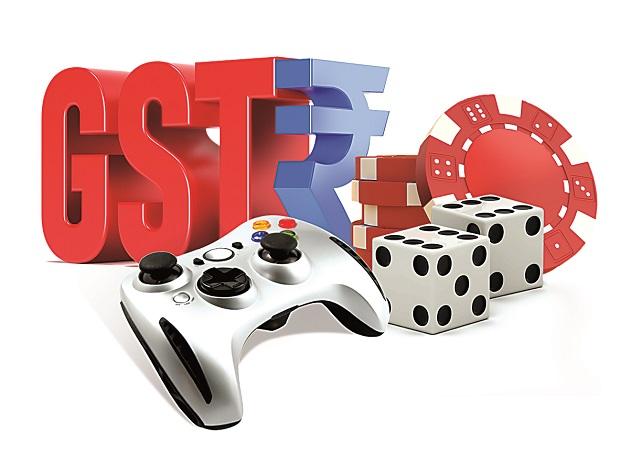Two Bills approved by the Parliament, imposing a 28% tax on online money gaming, casinos, and horse racing.
On Friday, the Parliament successfully passed two significant financial Bills, setting the stage for the enactment of a 28% goods and services tax (GST) on online money gaming, casinos, and horse racing establishments. This tax will be calculated based on the complete initial bet amount.
These proposed laws distinguish between online gaming and online money gaming, also including measures to ensure the imposition of the tax on gaming operators from overseas. This is achieved through the obligatory requirement of GST registration for such operators.
As per the presented Bills, brought forward by Union Finance Minister Nirmala Sitharaman, overseas providers of online money gaming services are required to undergo a simplified registration process in India. Failure to adhere to the registration and tax payment requirements will result in the denial of access to any data generated, transmitted, received, or hosted on the utilized computer resources.
In cases where the service provider lacks a physical presence or a representative within the taxable region, the proposed legislation mandates the appointment of an individual responsible for paying the integrated GST on behalf of the platform.
The approval of both financial Bills—the Central Goods and Services Tax (Amendment) Bill, 2023, and the Integrated Goods and Services Tax (Amendment) Bill, 2023—aligns with the GST Council's resolution to enforce these novel tax regulations starting from October 1. Furthermore, states are also required to ratify modifications to their respective state GST laws in connection with these changes.
Furthermore, the presented Bills offer precise definitions for online gaming, online money gaming, supplier, and particular actionable claims to elucidate the taxation aspects of these activities.
Online gaming is explicitly outlined as the provision of games through the internet or an electronic network, encompassing online money gaming within its scope. The concept of online money gaming is now introduced as a "specified actionable claim," and it will be treated comparably to activities such as betting, casinos, gambling, lottery, and horse racing.
In relation to online gaming platforms, the application of a 28% GST is limited to situations involving wagering and does not extend to services offered solely for entertainment purposes.
Moreover, the Bills bring clarity by specifying that online money gaming encompasses scenarios wherein participants make payments or deposits involving "money or money's worth," which includes virtual digital assets. These actions are undertaken with the expectation of achieving victory in games, schemes, or competitions, regardless of whether the outcomes are influenced by skill, chance, or a combination of both.
Rajat Bose, a partner at Shardul Amarchand Mangaldas & Co, remarked, "Inclusion of virtual digital assets in the scope ensures that any type of consideration, whether real, crypto, or digital, will now fall under the purview of taxation. This move eliminates the possibility of transactions involving cryptocurrencies, and the like, being exploited as a means to evade GST."
On July 11, the Council took the step to suggest a higher GST tax rate for online gaming, a decision that faced criticism from the industry. Subsequently, during its August 2 session, the Council resolved to grant an exemption from the tax on the redeployment of winnings derived from online gaming, thereby offering a degree of relief to the industry.
The Council concluded that the taxation would be applicable to the entire bet placed at the entry level, per gaming session, while excluding each round of betting on the winnings that are redeployed.
"The proposed changes would aid in the defense against previous legal disputes. Nonetheless, an unresolved matter pertains to whether the deposit of funds into an online gaming wallet qualifies as a taxable supply. This aspect is likely to undergo periodic interpretations," commented Saurabh Agarwal, tax partner at EY.
At present, the online gaming sector is subject to an 18% GST rate on platform fees or commissions. The introduced amendments, which impose higher taxes based on the complete initial bet amount, are poised to result in augmented GST revenues.
Sources indicate that these amendments are designed to establish a robust legal framework, eradicating legal uncertainties, and addressing the diverse concerns of stakeholders.






